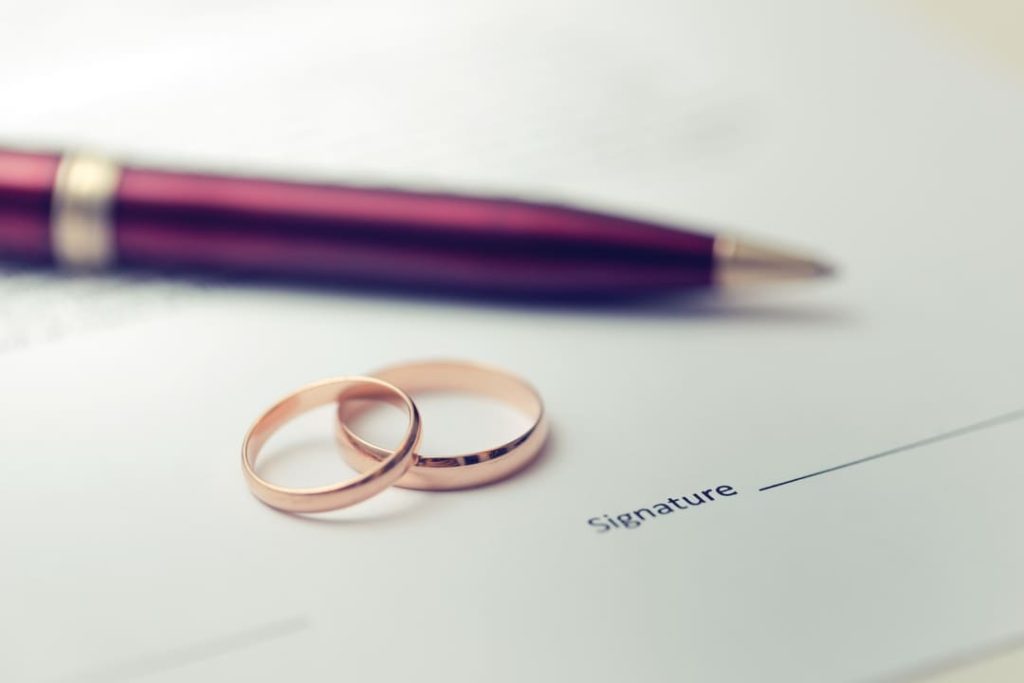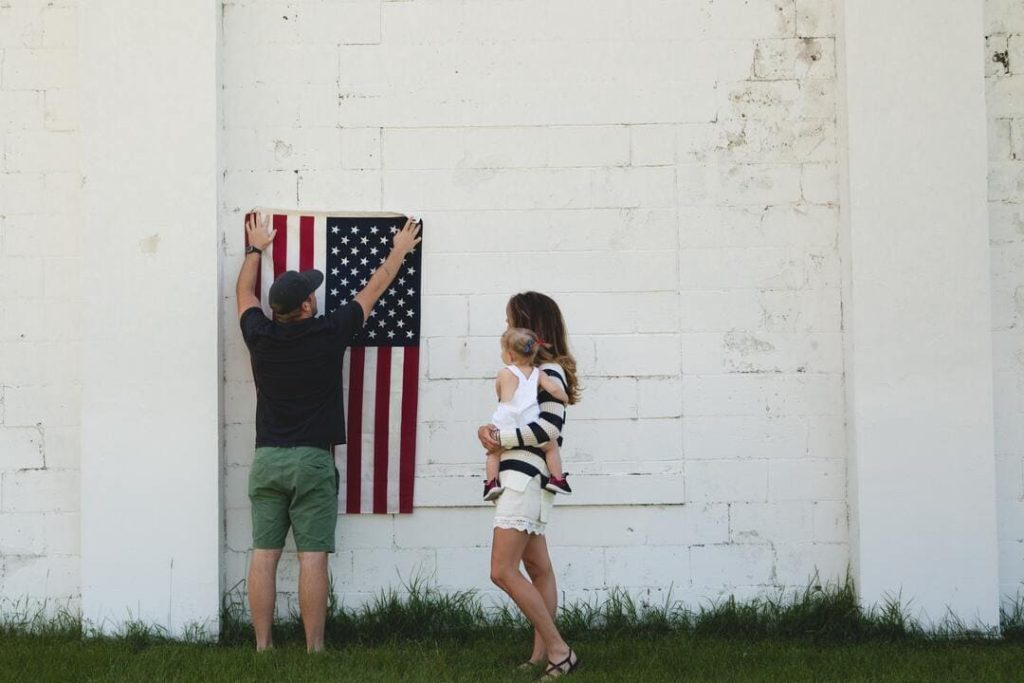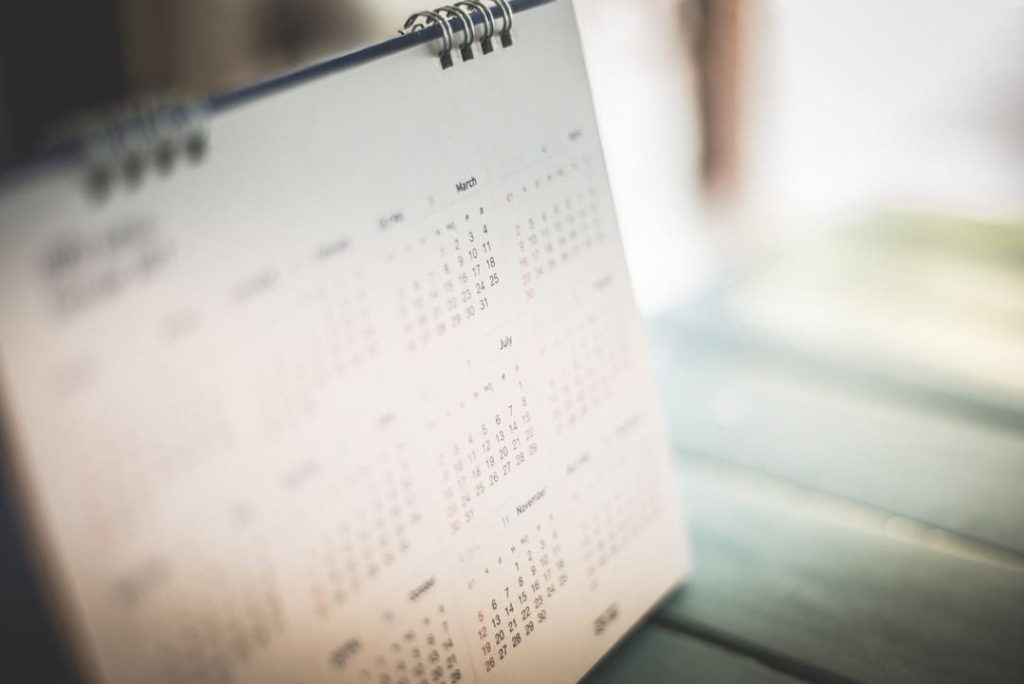Looking for Expert-Level VA Claim Answers?📱Call Us Now! 737-295-2226
Many veterans and their spouses (or soon-to-be spouses) want to know,
“How long do you have to be married to a veteran to get benefits?”
The short answer is that it can vary depending on the specific benefit.
However, being married for a year or longer should qualify you for most spousal benefits.
Keep reading to learn more about how your marriage status affects your eligibility for several key VA benefits.
Table of Contents

How Long Do You Have to Be Married to a Veteran to Get Benefits?
The duration of marriage needed for benefits as a U.S. veteran’s spouse varies depending on the specific benefit and eligibility criteria.
Sometimes, you become eligible for VA benefits for spouses as soon as you become legally married to a veteran with a service-connected disability.
However, in other cases, you must be married to a veteran with a service-connected disability for at least a year to take advantage of the benefit.
And what benefits and how much of each benefit you’re eligible for often depends on your spouse’s time in service, disability rating, and other factors.
Who Qualifies for Spousal VA Benefits?
The VA uses the same definition of “spouse” as the U.S. Code of Federal Regulations.
To meet this definition, your marriage must:
- Have been recognized under the law of the place where you or your veteran spouse resided when you got married, or
- Have been recognized under the law of the place where you or your veteran spouse lived when your veteran spouse became eligible for VA benefits
The same rules apply to same-sex marriages. The VA now recognizes all same-sex marriages no matter what state your marriage was performed in.

Top 6 Marriage Duration and VA Benefits
Below is a list of 6 great VA benefits for spouses. We’ve also listed the other eligibility criteria and how long you must be married to qualify.
#1: Healthcare (CHAMPVA)
What: The Civilian Health and Medical Program of the Department of Veterans Affairs (CHAMPVA) is optional health insurance for civilian spouses and dependents who don’t qualify for TRICARE.
Who: Spouses, surviving spouses, children, and surviving children
Marriage duration: No marriage duration requirement
Other requirements:
- You’re the spouse of a Veteran who’s been rated permanently and totally disabled for a service-connected disability by the VA regional office, or
- You’re the surviving spouse of a Veteran who died from a service-connected disability, or
- You’re the surviving spouse of a Veteran who was at the time of death rated permanently and totally disabled from a service-connected disability, or
- You’re the surviving spouse of a service member who died in the line of duty, not due to misconduct.
NOTE: If you’re the surviving spouse of a qualifying CHAMPVA sponsor and you remarry before age 55, you no longer qualify for CHAMPVA
CHAMPVA benefits: Covered services include:
- Ambulance service
- Ambulatory surgery
- Durable medical equipment (DME)
- Family planning and maternity
- Hospice
- Inpatient services
- Mental health services
- Outpatient services
- Pharmacy (prescription medicines)
- Skilled nursing care
- Transplants
#2: Survivors Pension
What: Survivors pension offers monthly payments to qualified surviving spouses and unmarried dependent children of wartime veterans.
Who: Surviving spouses and surviving children
Marriage duration: At least 1 year immediately preceding the veteran’s death. But if you’ve had a child with the veteran, you could qualify regardless of marriage duration.
Other requirements:
- You haven’t remarried after the Veteran’s death
- The deceased Veteran didn’t receive a dishonorable discharge
- From December 1, 2022 to November 30, 2023, your net worth (assets + annual income = net worth) is less than $150,538 (this amount changes annually)
- The veteran’s service meets at least one of these requirements:
- The Veteran entered active duty on or before September 7, 1980, and served at least 90 days on active military service, with at least 1 day during a covered wartime period, or
- The Veteran entered active duty after September 7, 1980, and served at least 24 months or the full period for which they were called or ordered to active duty (with some exceptions), with at least 1 day during a covered wartime period or
- The Veteran was an officer and started on active duty after October 16, 1981, and hadn’t previously served on active duty for at least 24 months
Survivors pension rates: The amount you receive for survivors pension is calculated using a simple formula:
(Maximum Annual Pension Rate (MARP) – Annual income) / 12 = Monthly payment
#3: Dependency and Indemnity Compensation (DIC)
What: DIC is a tax-free monthly payment for qualifying surviving family members who don’t exceed certain income limits.
Who: Surviving spouse, surviving child, surviving parent
Marriage duration: At least 1 year immediately preceding the veteran’s death. But if you’ve had a child with the veteran, you could qualify regardless of marriage duration.
Other requirements: You may be eligible for DIC if you meet these requirements:
ONE of these must be true:
- You lived with the Veteran or service member without a break until their death, or
- If you’re separated, you weren’t at fault for the separation
and ONE of these must be true:
- You married the Veteran or service member within 15 years of their discharge from the period of military service during which the qualifying illness or injury started or got worse, or
- You were married to the Veteran or service member for at least 1 year, or
- You had a child with the Veteran or service member
Dependent and Indemnity Compensation (DIC) Monthly Rates
As of December 1st, 2022, the monthly DIC rate is $1,562.74 if your Veteran spouse died on or after January 1, 1993.
The VA uses a different method to calculate your DIC monthly rate if your veteran spouse died before January 1, 1993.
There are also added amounts for surviving spouses who meet certain requirements:
Figure 1. Dependent and Indemnity Compensation (DIC) added amounts for surviving spouses
#4: Education and Training Benefits
What: VA education benefits can take the form of job training, scholarships, or tuition assistance.
Who: Spouse, surviving spouse, children, and surviving children
Marriage duration: As soon as you become legally married to a veteran
Other requirements: You may be eligible for VA education benefits (Chapter 35 benefits) if you’re the spouse or surviving spouse of a Veteran and at least one of these is true:
- The Veteran is permanently and totally disabled due to a service-connected disability, or
- The Veteran died while on active duty or as a result of a service-connected disability
You could still be eligible for VA education benefits even if your veteran spouse doesn’t have a service-connected disability rated by the VA if at least one of the following is true:
- The service member died in the line of duty after September 10, 2001, or
- The service member is missing in action or was captured in the line of duty by a hostile force, or
- The service member was detained (held) by force while in the line of duty by a foreign government or power, or
- The service member is in the hospital or getting outpatient treatment for a service-connected permanent and total disability, and is likely to be discharged for that disability. A service-connected permanent and total disability is a disability resulting from your service that doesn’t go away.
Education benefits:
- Defense Education Assistance
- Fry Scholarship
- Transferred Education Benefits
- Other VA Education Benefits
#5: Home Loan Programs
What: The VA-backed Home Loan program helps qualifying surviving spouses get a Certificate of Eligibility to show their lender.
Who: Surviving spouse
Marriage duration: As soon as you become legally married to a veteran
Other requirements:
- The Veteran is missing in action, or
- The Veteran is a prisoner of war (POW), or
- The Veteran died while in service or from a service-connected disability, and you didn’t remarry, or
- The Veteran died while in service or from a service-connected disability, and you didn’t remarry before you were 57 years old or before December 16, 2003, or
- The Veteran had been totally disabled and then died, but their disability may not have been the cause of death (in certain situations)
#6: Family Servicemembers’ Group Life Insurance (FSGLI)
What: FSGLI offers coverage for the spouse and dependent children of service members covered under full-time Servicemembers’ Group Life Insurance (SGLI)
Who: Spouse and children
Marriage duration: As soon as you become legally married to a veteran
Other requirements: You may be eligible for FSGLI if you’re the spouse or dependent child of a service member who meets one of these requirements:
- The service member is on active duty and covered by full-time SGLI, or
- The service member is a member of the National Guard or Ready Reserve covered by full-time SGLI
Who’s covered?
- Spouses of service members covered under SGLI
- Dependent children of service members covered under SGLI

Will I Receive My Spouse’s Monthly VA Compensation if They Die?
No, surviving spouses can’t receive monthly disability compensation.
Even though the U.S. Supreme Court decided in Rose V. Rose that the purpose of VA disability compensation is to “provide reasonable and adequate compensation for disabled veterans and their families,” if your veteran spouse passes away, monthly disability payments will stop.
Does the VA Recognize Common-Law Marriages?
Yes, the VA recognizes common-law marriages as legal marriages if the state where you reside recognizes common-law marriages.
Does the VA Recognize Domestic Partnerships or Civil Unions?
The VA will only recognize your domestic partnership or civil union as a marriage if your state does.
If you live in a state that does not recognize a civil union or domestic partnership as a marriage, neither will the VA, and you won’t be eligible for VA benefits for spouses.
Do VA Benefits for Spouses Change with a Veteran’s VA Disability Rating?
VA benefits for spouses can change as the veteran’s VA disability rating changes.
A veteran with a disability rating of 30% or higher is entitled to additional “dependents” benefits, which are payable to a spouse. These benefits can increase with the number of dependents and the severity of the veteran’s disability.
Conclusion
The VA provides a range of benefits to spouses of veterans, including health care, education, and death benefits.
Understanding the nuances of VA benefits for spouses can significantly impact your household’s financial security and peace of mind.
To learn more about these benefits, check out our FREE Resources page, the VA Claims Insider blog, and our YouTube!
If you’re considering filing a VA claim or looking to increase your current rating, reach out and schedule a VA Claims Insider Discovery Call.
(FAQs) Frequently Asked Questions About VA Benefits for Spouses
How Long Do You Have to be Married to a Veteran to Get Benefits?
The duration of marriage needed for VA benefits as a veteran’s spouse varies depending on the benefit and eligibility criteria.
Do I Automatically Receive VA benefits if I am Married to a Veteran?
No, you don’t automatically receive benefits for being married to a veteran.
The VA determines eligibility for benefits on a case-by-case basis.
How Do I Apply for VA Spousal Benefits?
You can apply for VA spousal benefits online, by mail, or in person at a VA office.
Can the Children of Veterans Receive VA Benefits?
Yes, children of veterans may be eligible for benefits such as health insurance, monetary benefits, and educational assistance.
Can I Receive Benefits if I’m a Spouse of a Veteran who was Dishonorably Discharged?
Generally speaking, benefits aren’t available to spouses of veterans who received a dishonorable discharge.
How Long Does it Take to Process a Spouse’s Benefit Claim?
It typically takes about 3 to 4 months from the time you submit your claim. This period can vary depending on the claim type, your situation’s specifics, and current VA backlogs.
Can a Divorced Spouse Get Veteran Benefits?
Yes, in some cases, a divorced spouse of a veteran may be eligible for certain benefits. However, the benefits are limited, and the eligibility criteria can vary depending on the specific benefit program and the divorce circumstances.
Can an ex-Wife Get VA Benefits After Death?
Sometimes, if a veteran’s ex-spouse meets certain conditions, they could qualify for VA benefits after the veteran passes away. It depends on the type of benefits (such as a survivor benefit’s plan), if the veteran’s death was related to their service, and what was agreed upon during their divorce.
NEED MORE ASSISTANCE?
Most veterans are underrated for their disabilities and, therefore, not getting their due compensation. At VA Claims Insider, we help you understand and take control of the claims process, so you can get the rating and compensation you’re owed by law. Our process takes the guesswork out of filing a VA disability claim and supports you every step of the way in building a fully-developed claim (FDC)!
If you’ve filed your VA disability claim and have been denied or have received a low rating—or you’re unsure how to get started—reach out to us! Take advantage of a VA Claim Discovery Call. Learn what you’ve been missing—so you can FINALLY get the disability rating and compensation YOU DESERVE!
Author

Clay Huston
Clay Huston is a former U.S. Army Reserves Blackhawk Pilot and officer. Clay enlisted in the Army in 2013 and was commissioned as a 2LT in 2017 after earning a business degree from the University of Illinois Champaign-Urbana.
Since separating from the military, Clay has pursued a career as a writer. He also runs the nonprofit notfatherless.org, which fundraises for Children’s Homes in Mexico.



